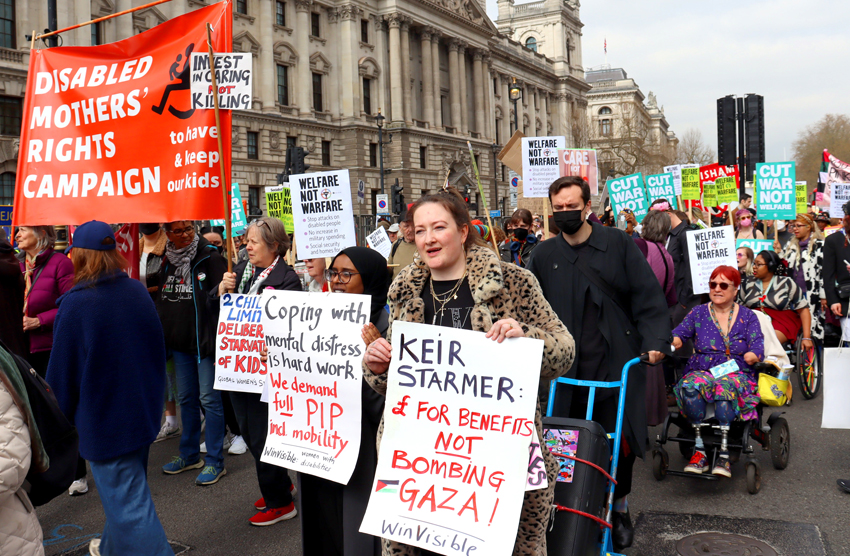
LABOUR’S top brass is facing a mounting backlash against its campaign of intimidation aimed at forcing MPs to fall in line behind a brutal programme of austerity targeting disabled people.
As a June vote looms over their £4.8 billion in disability benefit cuts, ministers are scrambling to suppress what could become a major internal rebellion.
Rather than back down from deeply unpopular policies, Labour’s leadership is reportedly pressuring dissenting MPs into silence — offering them the option to abstain rather than vote against the cuts, in an attempt to avoid a public revolt.
The tactic is being widely condemned as an attempt to coerce MPs into complicity with measures that will devastate the lives of their constituents.
One MP, speaking on condition of anonymity, noted the shift in tone from previous votes, saying: ‘When people abstained on the winter fuel vote, they were warned that it had been taken by the leadership as voting against the government. This time, however, a number of MPs have been offered the opportunity to abstain.’
The so-called compromise is being interpreted by many as a form of political blackmail, designed to stifle principled opposition to a policy that disproportionately targets some of the most vulnerable people in the country.
It comes after previous punishments for dissent — including suspensions and stripped privileges for MPs who defied the whip over the two-child benefit cap and fuel payment restrictions.
Now, with internal analysis revealing that more than 80 Labour MPs represent constituencies where the number of residents affected by the proposed benefit cuts exceeds their electoral majority, the leadership is under pressure.
At least 55 MPs are preparing to vote against the government, while over 100 more are said to be undecided.
Despite the widespread concern, Labour is pushing forward without even securing a proper assessment of the likely impact of its plans.
The government’s ‘back to work’ scheme, touted as the justification for slashing support, has not yet been evaluated by the Office for Budget Responsibility.
‘The obvious truth is that people will lose money under these proposals – including those who clearly don’t deserve to,’ said one MP.
‘This can’t simply be spun away. The mood in Westminster may seem calm, but this issue isn’t going to fade quietly.’
To pacify growing unrest, ministers are considering a separate policy bundle on child poverty, including increasing benefits for low-income parents of children under five.
But critics say this amounts to a smokescreen — a shallow attempt to sugar-coat a fundamentally cruel austerity programme.
Work and Pensions Secretary Liz Kendall is expected to unveil the child poverty plan in tandem with the vote on benefit cuts, with early proposals suggesting minor boosts to universal credit for families with young children.
However, the leadership refuses to remove the widely hated two-child cap — an austerity measure condemned by poverty experts and campaigners alike.
Behind closed doors, anti-poverty groups are briefing MPs on the catastrophic effects of the cuts, as ministers continue to hold private meetings aimed at heading off the rebellion.
These sessions, according to one MP, have become ‘a forum for backbenchers to vent their anger at the government’s actions’.
‘There is a serious depth of concern about how we got into this mess,’ they said.
‘There’s a growing sense of frustration that the leadership simply isn’t listening.’
Many within the party fear that the consequences — both political and human — will be severe and long-
lasting.